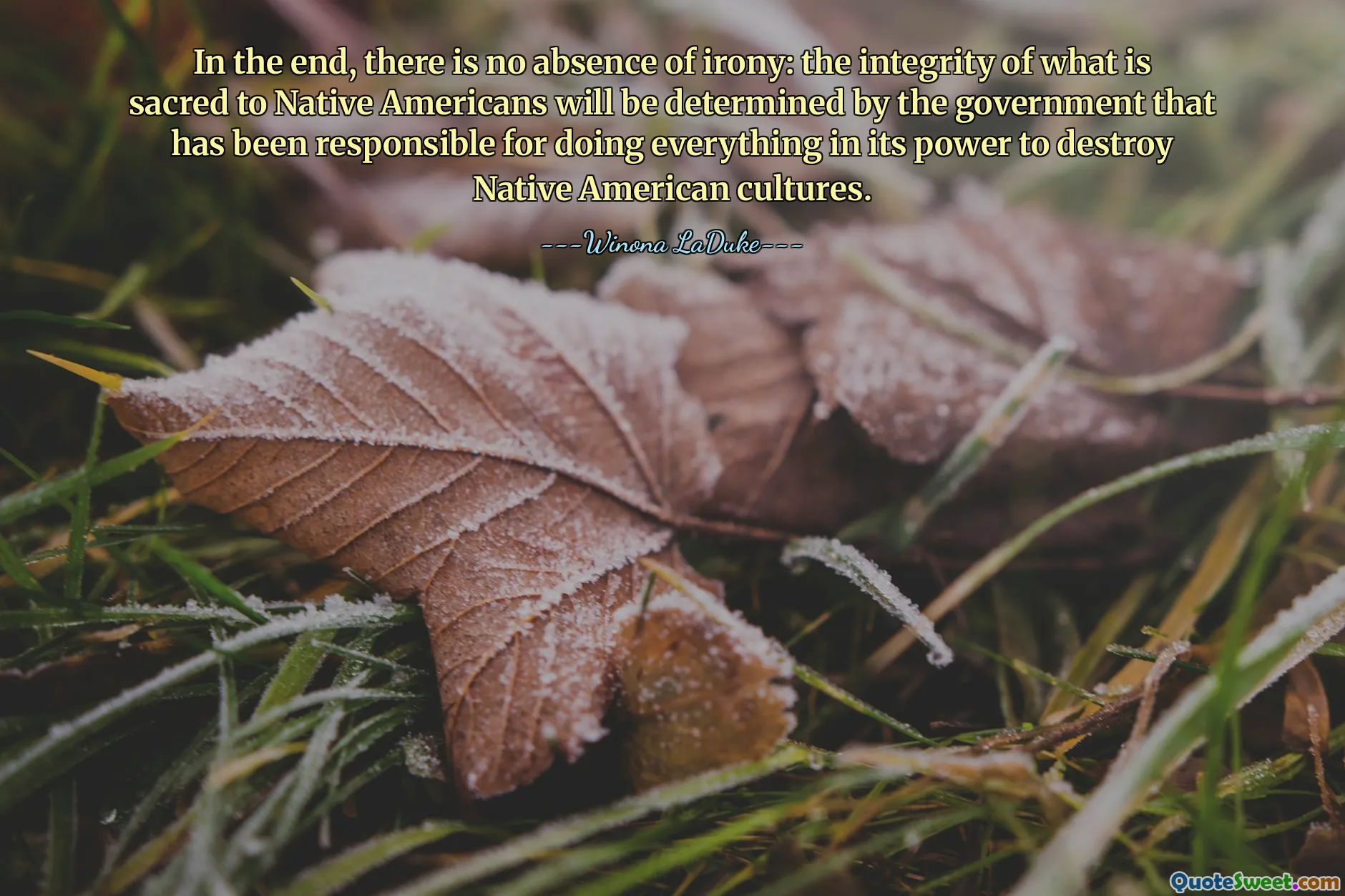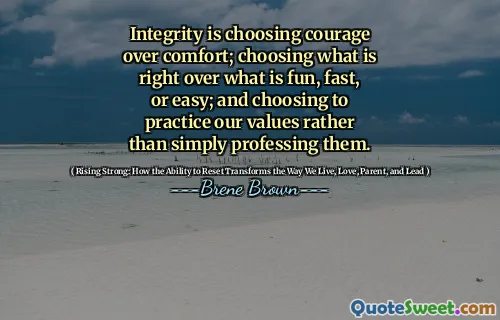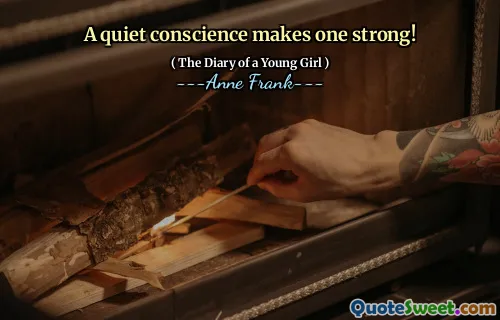
In the end, there is no absence of irony: the integrity of what is sacred to Native Americans will be determined by the government that has been responsible for doing everything in its power to destroy Native American cultures.
**This quote poignantly highlights the deep irony embedded within the relationship between Native American communities and the government that ostensibly seeks to support and preserve their cultures. It underscores the paradox that the very authority entrusted with protecting indigenous rights and sacred traditions has historically been the primary agent of cultural destruction, assimilation policies, and marginalization. What makes this situation particularly tragic is not only the systemic efforts to erase native identities but also the ongoing struggles for recognition, land rights, and cultural preservation. These efforts are often met with bureaucratic inertia or resistance rooted in colonial and colonial-like attitudes, which further complicate genuine efforts at reconciliation and respect for indigenous sovereignty. The quote calls for a critical reflection on how systems and institutions can be both protectors and destroyers, and it challenges us to reconsider notions of integrity and faithfulness to indigenous cultures that are often superficially supported by governmental policies.
From a broader perspective, this statement invites consideration of the historical patterns of colonization, forced relocations, and cultural assimilation programs such as boarding schools that sought to eradicate indigenous languages and spiritual practices. The ongoing struggles for land sovereignty, the protection of sacred sites, and the recognition of treaties reveal the enduring resilience of Native communities despite decades, even centuries, of systemic assault. It reminds us that genuine respect and preservation of sacred elements require more than surface-level acknowledgment; they demand meaningful action rooted in respect for autonomy, cultural pride, and indigenous voices. Recognizing the irony in these dynamics is crucial for fostering a truly equitable and honest dialogue about reconciliation and justice for Native Americans.










